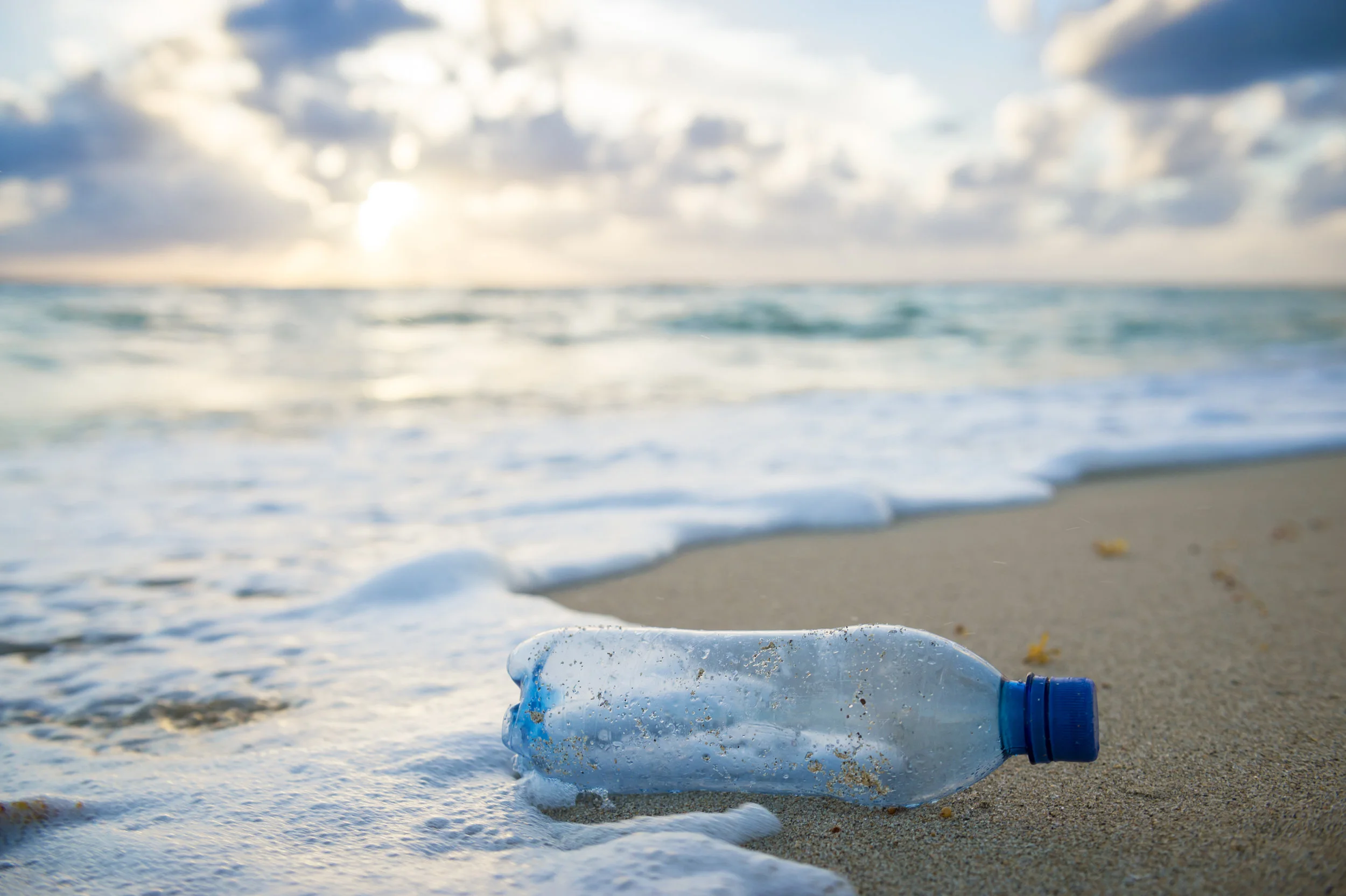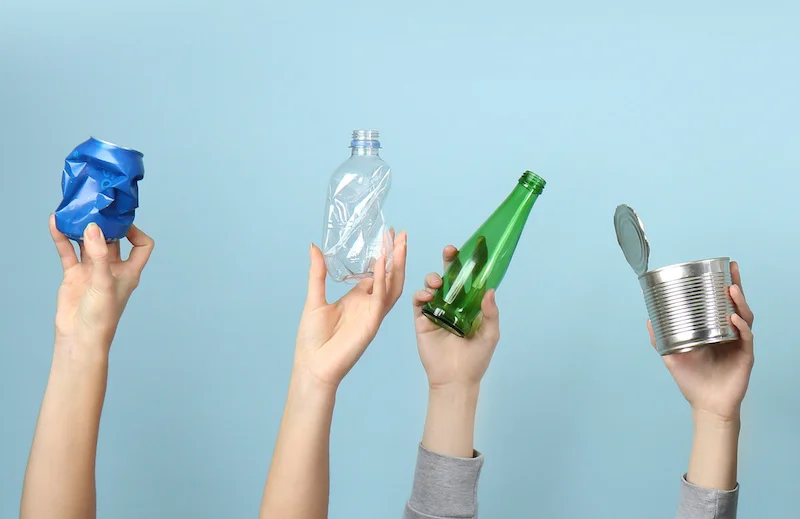Recycling in the United States

Only about a third of US waste is recycled
According to the Environmental Protection Agency, the United States generates around 250 million tons of waste a year. Of that 250 million tons, only about a third of this is recycled and composted.
However, US plastic recycling numbers are extremely low, as only 9% of all plastic trash is recycled. These numbers are shocking, especially if compared to other highly developed countries, such as Germany which has a recycling rate of 56.1%, or Switzerland and Italy, who recycle around 50% of all plastic trash.
Why are the recycling numbers so low for the US?

Well, until recently, The USA was exporting about 40% of its recycling trash to China, thus removing the problem at the very core and easing the whole recycling process for the country. However, the scenario radically changed in 2017, once China decided to modify the laws regarding “yang laji” or foreign garbage: the Chinese authorities realized that too much trash was mixed with the recyclables. Therefore, the Chinese government placed strict rules when it comes to buying foreign garbage: the recycling needs to be lean and unmixed—a standard too hard to meet for most American cities.
So what happens now for US recycling?
Recycling companies in the US are increasingly charging more for their recycling services. Of course, not all can afford the higher costs, therefore, some cities are resorting to alternative ways such as incinerators. Philadelphia is one of these cities which is currently adopting this ‘temporary solution’. Philadelphia authorities have identified the areas where there is most contamination in the recycling bins and started sending their material to an incinerator in nearby Chester, PA that turns waste into energy which can be sold back to the electrical grid.
However, the concerns regarding this incineration activity are many, especially about the increased air pollution around the Chester area. In fact, according to the state health statistics, the Chester situation is already alarming as ‘nearly four in 10 children in the city have asthma, while the rate of ovarian cancer is 64 percent higher than the rest of Pennsylvania and lung cancer rates are 24 percent higher’ (Milman, 2019). These findings are also due to the fact that the Chester incinerator, as well as many others in the country, is aging thus probably would not meet the latest pollution controls.
Nearly 4 in 10 children in Chester, PA have asthma, while the rate of ovarian cancer is 64 percent higher than the rest of Pennsylvania and lung cancer rates are 24 percent higher
It is clear that the whole recycling system in the US needs to be overhauled in order to decrease the environmental damage, especially due to the considerable size of the USA and the amount of garbage the country produces.
Another way to improve the current US trash situation would be to focus on reducing the overall waste, and there are many ways that people can learn how to do that. Few tips, especially related to plastic, are given through our previous blog posts regarding the Plastic-Free July challenge.

Having a Lavit machine in an office environment radically reduces the use of single-use plastics within the workplace as the machine can produce many different types of drinks (25+ flavors) - such as iced teas/coffee, flavored waters and so on - without having to use plastic bottles and/or packaging.
The drinks are produced through a 100% recyclable aluminum EcoCap just one-seventh the size of a 12 oz. aluminum can, which can be directly thrown into the recycling trash after use.
The drinks are produced through a 100% recyclable aluminum EcoCap just one-seventh the size of a 12 oz. aluminum can, which can be directly thrown into the recycling trash after use. Moreover, unlike plastic, aluminum is a material that can be infinitely recycled: It can be recycled over and over again without losing quality, in fact, 75% of aluminum ever created is still in use today.
We’re just as excited as you to get our team back in the office and working together safely!
Have you heard about the many health and safety benefits of Lavit? Learn about our top 3 health and safety benefits!
Have you heard about the many health and safety benefits of Lavit? Learn about our top 3 health and safety benefits!
Sparkling water does so much more than make us feel better when we have the flu, it reaps multiple health benefits for everyone.
With so many people switching between still and sparkling water, it is important to know how effective sparkling water is at hydrating you.
The reality of the Lavit drink machine is going to blow away what low expectations you might have had!
The sustainability movement is one that is focused on changing the way we live so that we stop harming the environment. But will the movement take over the world at some point?
With a beach cleanup, your company can make oceans safer and more pleasant for people and for animals alike.
In order to help your company bond and give back to society, it's important to find team building activities that have a cause.
Workplaces consume a great deal of energy, but there are ways your workplace can reduce and ultimately alleviate its waste.
We have all been taught to reduce, reuse, and recycle but what most people don't pay attention to is the fact that these are actually in their respective order of importance. Reducing is the most important thing you can do.
Modern hair salons need to focus heavily on customer experience, a big part of which includes the sustainability enjoyed by customers when they visit, and the experience in each waiting room. These positive or negative customer experience impact sales significantly.
Health-based businesses need to provide an improved customer experience. New studies indicate longer wait times, and stressed patients can be aided with improved customer experiences— and these can improve sales and references too.
With the Lavit Drink system you can offer your employees a range of cocktails, mocktails, and holiday-themed drinks for your next office happy hour.
Soda is bad for your health, your teeth, and just about everything else. Get ready for some spooky facts about soda that will make you want to make the switch to sparkling water right away.
From the regulation of the recycle symbol to the build up of plastic bags in our water supply - here’s 7 disturbing ways plastic bags impact the environment.
Lavit has partnered with One Drop to help bring clean and safe water to communities in need.
Apartment leasing offices handle an influx of customers who are left to sit and wait. During this time, the customer experience they have can make or break the professional relationship, and subsequently, the overall sales. Cultivating a positive customer experience is key to success - here’s how to do it!
Working at a desk or in an office doesn’t mean you have to be unhealthy! With these tips you can lose weight without having to quit your day job.
Leveraging your brand as a healthy, eco-friendly company brings with it many benefits. Green campaigns have been successful in driving company profits and long term customer loyalty.
News flash: A recent study by Glassdoor found that 60 percent of employees indicate benefits and perks are a major factor when accepting a job offer, and 80 percent of employees would choose additional benefits over a pay raise. Here’s 12 low-cost perks you can offer your employees!
Dental businesses cannot survive on talent and services alone. Whether you just started a new practice, have had one for a while or work at someone else’s, this article will show you where most practices fail and how to ensure that your patients keep coming back!






























Give your office an immune and energy boost! Learn all about our delicious EBOOST flavor that’s jam packed with vitamins, minerals, electrolytes and more!